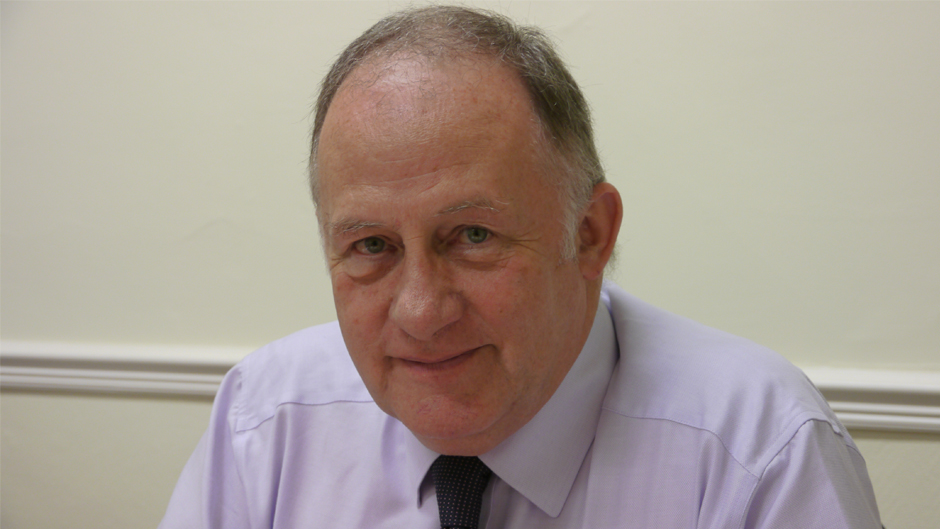Children must come first – Ian Elliott

The recent visit of the Irish bishops to the Pope has generated intense media coverage, most of it negative. There’s a sense that no progress was made, and that, if anything, the hierarchy has stepped backward.
What’s been missed in the coverage is the confirmation, in the official statement emerging after the bishops’ audience with his Holiness, of their collective commitment to the National Board for the Safeguarding of Children in the Catholic Church in Ireland. That matters. It shouldn’t be missed. Because what should be of paramount importance to all within the Catholic Church in Ireland at this time is the need to confirm the safety and wellbeing of children today and in the future. It may seem obvious to state but the past can not be changed. It is only the present and the future that we can influence.
That’s not to say that victims should not be listened to. Of course they should. Policies designed to protect children and approaches to the selection and training of priests can work only if they’re informed by the experience of victims. The grim truth is that victims are experts in a way nobody else is expert, and developing an effective safeguarding structure within the Church can be greatly enhanced by listening to and drawing upon the wisdom of those that have been harmed within the Church.
Privilege
In my current role, I have had the privilege of being able to listen to a number of people who have chosen to talk to me about their experience of abuse within the Church. I have greatly appreciated their courage, dignity, and generosity of spirit because by so doing they have helped me to learn. Decisions that we make today are shaped by the wisdom that they offer. This is a lesson that has to be learnt by all within leadership positions in the Church. In my view, many individuals who have suffered clerical abuse are a vital resource through which important insights can be gained. For this to happen there has to be a dialogue and a willingness to listen. This will be to the benefit of all those who are willing to be involved in such a process.
Whenever victims seek to talk to the Church, a number of fears kick in. Fears of emotional involvement, of legal admission, of cutting across the civil rights of the accused, of embarking on a dialogue for which most bishops are inadequately trained and of which they are often fearful.
The problem is that for too long, too many instances of failure to deal properly with abusers was condoned or explained away by reference to a lack of understanding of the phenomenon of clerical child sexual abuse. That era, I believe, is coming to an end. Several bishops have already attended training courses run by the National Board for the Safeguarding of Children, and I would hope all of the hierarchy, north and south of the border, will follow their example in the coming year.
Robust policies
It is important to state that current safeguarding practice in the Church is supported by robust policies and procedures that are compliant with legislation in both jurisdictions on the island of Ireland. The National Board for Safeguarding Children in the Catholic Church has been given a mandate to audit compliance to these standards across the whole of the Church. This represents a significant development that we will continually test out as our work goes forward.
In the event that any part of the Church is found to be guilty of not adhering to the agreed policies, this will be addressed and changed. No one should doubt the commitment to safeguarding children in the Church that underpins the work of the National Board. I would urge people to judge us by our actions. For us the safety of children comes first above all other considerations.
One of the great difficulties to facilitating change within the Catholic Church is the fact that it is not a single entity but a number of units that are joined on some occasions closely and others tenuously. That said, it is now clear that a uniform commitment to change has taken root across dioceses. If an allegation is made against a cleric there is no hesitation in communicating that information to the state authorities and to my office. There is no delay and there is an expectation that action will follow.
That was not the case when I took up this post over two years ago. At that point, as became publicly evident, some bishops were less than committed to the work of the Board. In the interim, a shift in attitude and behaviour has happened.
That change should be acknowledged. The Catholic Church, the largest membership organisation on the island with more than four million members, had, bluntly, lost sight of the need to put the safety of children first. It was slow, disorganised and inconsistent in its addressing of the child abuse issue. It cannot change its past. However, it can alter its present and its future by placing the focus on children’s safety, helped by drawing on the wisdom of those who have experienced harm within the Church.
The independence of the National Board for the Safeguarding of Children has been established, and it is from that point of independence I now can confirm that the capacity to protect children within the Catholic Church has radically improved over the past two years.
If all aspects of hierarchical commitment continue, the island of Ireland could, within the foreseeable future, become a case study in excellence where the safeguarding of children is concerned.
